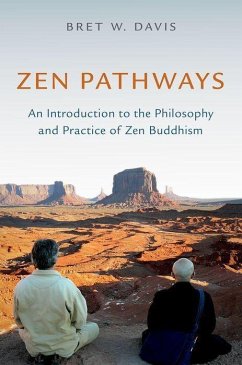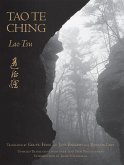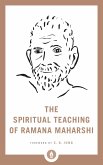Bret W. Davis (Professor of Philosophy, Professor of Philosophy, Lo
Zen Pathways
An Introduction to the Philosophy and Practice of Zen Buddhism
Bret W. Davis (Professor of Philosophy, Professor of Philosophy, Lo
Zen Pathways
An Introduction to the Philosophy and Practice of Zen Buddhism
- Broschiertes Buch
- Merkliste
- Auf die Merkliste
- Bewerten Bewerten
- Teilen
- Produkt teilen
- Produkterinnerung
- Produkterinnerung
This book offers an in-depth introduction to the philosophy and practice of Zen Buddhism. Bret Davis explores the philosophical implications of Zen teachings and koans, comparing and contrasting these with other Asian as well as Western religions and philosophies. He relates traditional Zen teachings and practices to our twenty-first century lives.
Andere Kunden interessierten sich auch für
![The Art of Living The Art of Living]() Thich Nhat HanhThe Art of Living12,99 €
Thich Nhat HanhThe Art of Living12,99 €![World Soul World Soul]() World Soul50,99 €
World Soul50,99 €![Oneness Oneness]() Philip J. Ivanhoe (Professor of East Asian Chair and Comparative POneness84,99 €
Philip J. Ivanhoe (Professor of East Asian Chair and Comparative POneness84,99 €![Pathways to Knowledge Pathways to Knowledge]() Alvin I. Goldman (Board Board of Governors Professor of PhilosophyPathways to Knowledge45,99 €
Alvin I. Goldman (Board Board of Governors Professor of PhilosophyPathways to Knowledge45,99 €![Tao Te Ching: With Over 150 Photographs by Jane English Tao Te Ching: With Over 150 Photographs by Jane English]() Lao TzuTao Te Ching: With Over 150 Photographs by Jane English20,99 €
Lao TzuTao Te Ching: With Over 150 Photographs by Jane English20,99 €![The Spiritual Teaching of Ramana Maharshi The Spiritual Teaching of Ramana Maharshi]() Ramana MaharshiThe Spiritual Teaching of Ramana Maharshi17,99 €
Ramana MaharshiThe Spiritual Teaching of Ramana Maharshi17,99 €![Meditations Meditations]() J. KrishnamurtiMeditations17,99 €
J. KrishnamurtiMeditations17,99 €-
-
-
This book offers an in-depth introduction to the philosophy and practice of Zen Buddhism. Bret Davis explores the philosophical implications of Zen teachings and koans, comparing and contrasting these with other Asian as well as Western religions and philosophies. He relates traditional Zen teachings and practices to our twenty-first century lives.
Hinweis: Dieser Artikel kann nur an eine deutsche Lieferadresse ausgeliefert werden.
Hinweis: Dieser Artikel kann nur an eine deutsche Lieferadresse ausgeliefert werden.
Produktdetails
- Produktdetails
- Verlag: Oxford University Press Inc
- Seitenzahl: 480
- Erscheinungstermin: 27. Dezember 2021
- Englisch
- Abmessung: 234mm x 158mm x 35mm
- Gewicht: 678g
- ISBN-13: 9780197573693
- ISBN-10: 019757369X
- Artikelnr.: 63246264
- Herstellerkennzeichnung
- Libri GmbH
- Europaallee 1
- 36244 Bad Hersfeld
- gpsr@libri.de
- Verlag: Oxford University Press Inc
- Seitenzahl: 480
- Erscheinungstermin: 27. Dezember 2021
- Englisch
- Abmessung: 234mm x 158mm x 35mm
- Gewicht: 678g
- ISBN-13: 9780197573693
- ISBN-10: 019757369X
- Artikelnr.: 63246264
- Herstellerkennzeichnung
- Libri GmbH
- Europaallee 1
- 36244 Bad Hersfeld
- gpsr@libri.de
Bret W. Davis is Professor and Thomas J. Higgins, S.J. Chair in Philosophy at Loyola University Maryland, where he teaches classes in Western, Asian, and cross-cultural philosophy, and where he directs The Heart of Zen Meditation Group. In addition to publishing more than seventy-five scholarly articles, he has authored, edited, and translated a number of books, including Japanese Philosophy in the World (in Japanese), Heidegger and the Will: On the Way to Gelassenheit, Martin Heidegger: Key Concepts, Japanese and Continental Philosophy: Conversations with the Kyoto School, Engaging Dogen's Zen: The Philosophy of Practice as Awakening, The Oxford Handbook of Japanese Philosophy, and Bipedal Philosophers (in Japanese). In 2001, he obtained a Ph.D. in philosophy from Vanderbilt University. He lived in Japan for more than a dozen years, during which time he studied Buddhist thought at Otani University, and Japanese philosophy at Kyoto University, while practicing Zen at the monastery of Shokokuji in Kyoto. He is fluent in Japanese, semi-fluent in German, and proficient in reading Classical Chinese. In 2010, he was formally recognized as a Teacher (Sensei) and Director of a Zen Center by Kobayashi Gentoku Roshi, the current abbot of Shokokuji.
* Preface: Why Write or Read this Book?
* Chapter 1: What Really is Zen? Recovering the Beginner's Open Mind
* Chapter 2: Previewing the Path of Zen: Know Thyself, Forget Thyself,
Open Thyself
* Chapter 3: Zen Meditation as a Practice of Clearing the Heart-Mind
* Chapter 4: How to Practice Zen Meditation: Attending to Place, Body,
Breath, and Mind
* Chapter 5: The Buddha's First and Last Lesson: The Middle Way of
Knowing What Suffices
* Chapter 6: The Buddha's Strong Medicine: Embracing Impermanence
* Chapter 7: The True Self is Egoless
* Chapter 8: We are One: Loving Others as Yourself
* Chapter 9: But We Are Not the Same: Taking Turns as the Center of the
Universe
* Chapter 10: Who or What is the Buddha?
* Chapter 11: Mind is Buddha: So, if You Encounter the Buddha, Kill
Him!
* Chapter 12: Dying to Live: Zen, Pure Land Buddhism, and Christianity
* Chapter 13: Zen as Trans-Mysticism: Everyday Even Mind is the Way
* Chapter 14: Engaged Zen: From Inner to Outer Peace
* Chapter 15: The Dharma of Karma: We Reap What We Sow
* Chapter 16: Zen and Morality: Following Rules to Where There Are No
Rules
* Chapter 17: Being in the Zone of Zen: The Natural Freedom of No-Mind
* Chapter 18: Zen Lessons from Nature: Samu and the Giving Leaves
* Chapter 19: Zen and Art: Cultivating Naturalness
* Chapter 20: Zen and Language: The Middle Way Between Silence and
Speech
* Chapter 21: Between Zen and Philosophy: Commuting with the Kyoto
School
* Chapter 22: S?t? and Rinzai Zen Practice: Just Sitting and Working
with K?ans
* Chapter 23: Death and Rebirth-Or, Nirvana Here and Now
* Chapter 24: Reviewing the Path of Zen: The Ten Oxherding Pictures
* Endnotes
* Discussion Questions
* Index
* Chapter 1: What Really is Zen? Recovering the Beginner's Open Mind
* Chapter 2: Previewing the Path of Zen: Know Thyself, Forget Thyself,
Open Thyself
* Chapter 3: Zen Meditation as a Practice of Clearing the Heart-Mind
* Chapter 4: How to Practice Zen Meditation: Attending to Place, Body,
Breath, and Mind
* Chapter 5: The Buddha's First and Last Lesson: The Middle Way of
Knowing What Suffices
* Chapter 6: The Buddha's Strong Medicine: Embracing Impermanence
* Chapter 7: The True Self is Egoless
* Chapter 8: We are One: Loving Others as Yourself
* Chapter 9: But We Are Not the Same: Taking Turns as the Center of the
Universe
* Chapter 10: Who or What is the Buddha?
* Chapter 11: Mind is Buddha: So, if You Encounter the Buddha, Kill
Him!
* Chapter 12: Dying to Live: Zen, Pure Land Buddhism, and Christianity
* Chapter 13: Zen as Trans-Mysticism: Everyday Even Mind is the Way
* Chapter 14: Engaged Zen: From Inner to Outer Peace
* Chapter 15: The Dharma of Karma: We Reap What We Sow
* Chapter 16: Zen and Morality: Following Rules to Where There Are No
Rules
* Chapter 17: Being in the Zone of Zen: The Natural Freedom of No-Mind
* Chapter 18: Zen Lessons from Nature: Samu and the Giving Leaves
* Chapter 19: Zen and Art: Cultivating Naturalness
* Chapter 20: Zen and Language: The Middle Way Between Silence and
Speech
* Chapter 21: Between Zen and Philosophy: Commuting with the Kyoto
School
* Chapter 22: S?t? and Rinzai Zen Practice: Just Sitting and Working
with K?ans
* Chapter 23: Death and Rebirth-Or, Nirvana Here and Now
* Chapter 24: Reviewing the Path of Zen: The Ten Oxherding Pictures
* Endnotes
* Discussion Questions
* Index
* Preface: Why Write or Read this Book?
* Chapter 1: What Really is Zen? Recovering the Beginner's Open Mind
* Chapter 2: Previewing the Path of Zen: Know Thyself, Forget Thyself,
Open Thyself
* Chapter 3: Zen Meditation as a Practice of Clearing the Heart-Mind
* Chapter 4: How to Practice Zen Meditation: Attending to Place, Body,
Breath, and Mind
* Chapter 5: The Buddha's First and Last Lesson: The Middle Way of
Knowing What Suffices
* Chapter 6: The Buddha's Strong Medicine: Embracing Impermanence
* Chapter 7: The True Self is Egoless
* Chapter 8: We are One: Loving Others as Yourself
* Chapter 9: But We Are Not the Same: Taking Turns as the Center of the
Universe
* Chapter 10: Who or What is the Buddha?
* Chapter 11: Mind is Buddha: So, if You Encounter the Buddha, Kill
Him!
* Chapter 12: Dying to Live: Zen, Pure Land Buddhism, and Christianity
* Chapter 13: Zen as Trans-Mysticism: Everyday Even Mind is the Way
* Chapter 14: Engaged Zen: From Inner to Outer Peace
* Chapter 15: The Dharma of Karma: We Reap What We Sow
* Chapter 16: Zen and Morality: Following Rules to Where There Are No
Rules
* Chapter 17: Being in the Zone of Zen: The Natural Freedom of No-Mind
* Chapter 18: Zen Lessons from Nature: Samu and the Giving Leaves
* Chapter 19: Zen and Art: Cultivating Naturalness
* Chapter 20: Zen and Language: The Middle Way Between Silence and
Speech
* Chapter 21: Between Zen and Philosophy: Commuting with the Kyoto
School
* Chapter 22: S?t? and Rinzai Zen Practice: Just Sitting and Working
with K?ans
* Chapter 23: Death and Rebirth-Or, Nirvana Here and Now
* Chapter 24: Reviewing the Path of Zen: The Ten Oxherding Pictures
* Endnotes
* Discussion Questions
* Index
* Chapter 1: What Really is Zen? Recovering the Beginner's Open Mind
* Chapter 2: Previewing the Path of Zen: Know Thyself, Forget Thyself,
Open Thyself
* Chapter 3: Zen Meditation as a Practice of Clearing the Heart-Mind
* Chapter 4: How to Practice Zen Meditation: Attending to Place, Body,
Breath, and Mind
* Chapter 5: The Buddha's First and Last Lesson: The Middle Way of
Knowing What Suffices
* Chapter 6: The Buddha's Strong Medicine: Embracing Impermanence
* Chapter 7: The True Self is Egoless
* Chapter 8: We are One: Loving Others as Yourself
* Chapter 9: But We Are Not the Same: Taking Turns as the Center of the
Universe
* Chapter 10: Who or What is the Buddha?
* Chapter 11: Mind is Buddha: So, if You Encounter the Buddha, Kill
Him!
* Chapter 12: Dying to Live: Zen, Pure Land Buddhism, and Christianity
* Chapter 13: Zen as Trans-Mysticism: Everyday Even Mind is the Way
* Chapter 14: Engaged Zen: From Inner to Outer Peace
* Chapter 15: The Dharma of Karma: We Reap What We Sow
* Chapter 16: Zen and Morality: Following Rules to Where There Are No
Rules
* Chapter 17: Being in the Zone of Zen: The Natural Freedom of No-Mind
* Chapter 18: Zen Lessons from Nature: Samu and the Giving Leaves
* Chapter 19: Zen and Art: Cultivating Naturalness
* Chapter 20: Zen and Language: The Middle Way Between Silence and
Speech
* Chapter 21: Between Zen and Philosophy: Commuting with the Kyoto
School
* Chapter 22: S?t? and Rinzai Zen Practice: Just Sitting and Working
with K?ans
* Chapter 23: Death and Rebirth-Or, Nirvana Here and Now
* Chapter 24: Reviewing the Path of Zen: The Ten Oxherding Pictures
* Endnotes
* Discussion Questions
* Index








